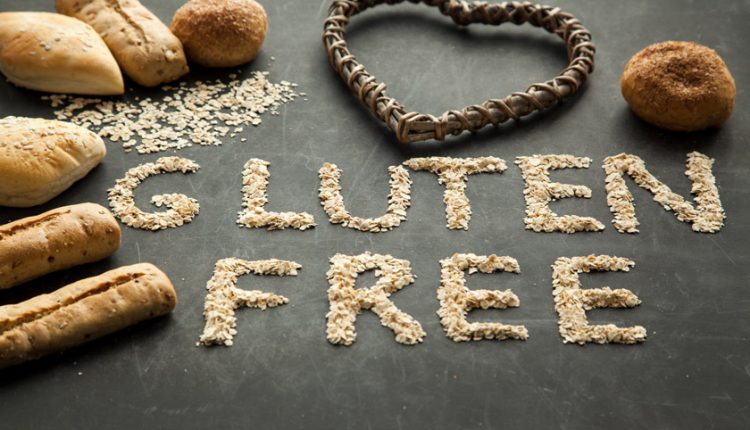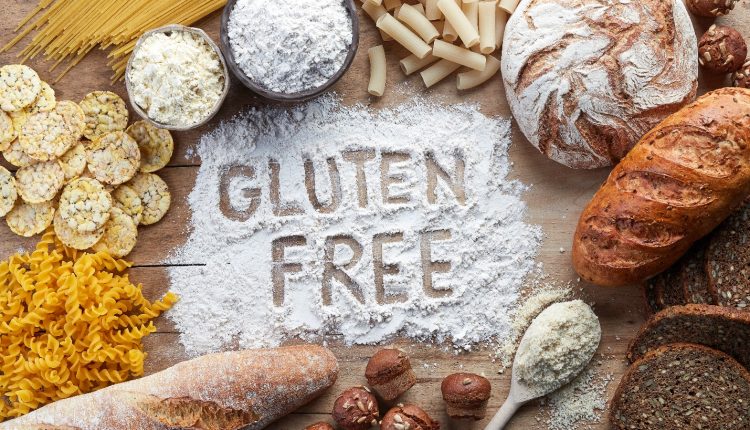
Going on Gluten-Free Diet for Seniors with Celiac Disease
Celiac disease has gone from a relatively unknown condition to a highly controversial topic with increasing health awareness worldwide. This is to say, this disease is also prevalent among older adults. Some evidence has also indicated a relationship between celiac disease and ageing.
In short, to combat this disease, you should follow a proper diet and avoid eating specific foods. Therefore, this article helps you know more about this disease and how you can control it.
Contents
What Is Celiac Disease?
Celiac disease is an immune reaction to eating foods containing gluten. Gluten is a group of proteins first found in wheat. Other grains also containing gluten are barley, rye, and spelt. Most people ingest gluten without any problem, while people with celiac disease, gluten sensitivity, and wheat allergies face several difficulties when eating gluten.
In celiac people, eating foods containing gluten triggers an immune response in the small intestine. Over time, such a reaction destroys the small intestine lining. As a result, making some nutrients are more difficult to absorb. Moreover, gut damage usually leads to diarrhea, fatigue, weight loss, bloating and anemia.

Celiac Symptoms
Celiac symptoms are significantly varied and differ in children and adults. However, some of the digestive signs for adults are:
- Diarrhea
- Fatigue
- Weight loss
- Bloating
- Abdominal pain
- Nausea and vomiting
- Constipation
Despite digestive signs, some other adults with celiac disease, more than half of them, experience unrelated symptoms to the digestive system, including:
- Anemia (In other words, iron deficiency)
- Decrease in bone density or softening of bone
- Itchy, blistery skin rash
- Mouth ulcers
- Headaches and fatigue
- Injury to the Nervous system. For example, numbness and tingling in feet and hands, balance problems, or cognitive impairment
- Pain in the joints
- Decreased functioning of the spleen
Onset Celiac Disease in Seniors
Celiac symptoms in children and young adults are commonly anemia, failure to thrive, diarrhea, and weight loss. However, in seniors older than 65 years old and older, the symptoms may be somehow different and often milder than in youngsters. Obesity is the only celiac symptom in seniors that is rare in younger ones. In addition, the milder symptoms of celiac in older adults may delay the diagnosis and treatment of the disease.
Ageing, Celiac Disease, and Other Chronic Diseases
Studies showed that about 34% of new celiac disease cases occur in people 60 or older. In other words, as people get older, their gluten sensitivity increases. However, changing it may be more difficult since seniors usually maintain the same diet for years. In conclusion, adopting a gluten-free diet becomes highly difficult in old age.
The evidence suggests that there may also be a relationship between cardiovascular health and celiac disease. Therefore, seniors with celiac disease are at higher risk of heart disease, probably because chronic inflammation contributes to fatty buildup and stress on blood vessels.
How to Cope with Celiac Disease: Changing Lifestyle
The only treatment for celiac is a “gluten-free diet,” which means you should avoid gluten for the rest of your life. However, going on a gluten-free diet requires a new approach to food and avoiding eating most grains, pasta, cereals, bread, and some processed foods. Therefore, It would be best to read food labels and check all ingredients used in the formulation. Fortunately, gluten-free bread, pasta and other foods are commercially available, so going on a gluten-free diet is not that hard today.

Tips to Go on a Gluten-Free Diet
Here we provide some tips to eliminate gluten and get a gluten-free diet:
The Type of Grain Is Important
You should avoid all foods made from wheat, such as barley, rye, triticale, farina, graham flour, and drum.
– Corn flour does not contain gluten, but you should be aware that corn flour can become contaminated with wheat flour during manufacturing and processing foods.
– Consume oat. This valuable grain is also gluten-free and has several other beneficial health effects. You can safely eat oats if they are not contaminated with wheat flour during processing.
– Substitute grains and foods presented in Table 1 for wheat flour
Read Food Labels: Hidden Gluten
You may read the food labels without seeing the “gluten” word. But it is not sufficient since there may be hidden gluten. To avoid gluten, especially if you have severe celiac disease, prevent grain derivatives like einkorn, emmer, spelt, Kamut, wheat starch, wheat starch, wheat bran, wheat germ, cracked wheat, and hydrolyzed wheat protein.
It would be best to avoid emulsifiers, dextrin, mono-di-glycerides, seasoning, and caramel colours since they may contain gluten.
| Foods and grains people with celiac disease should and should not eat | |
|---|---|
| What to avoid | What to eat |
| Barley | Amaranth |
| Barley malt/extract | Arrowroot |
| Bulgur | Buckwheat |
| Couscous | Corn |
| Durum | Millet |
| Einkorn | Potatoes (including sweet potatoes) |
| Emmer | Quinoa |
| Farina | Rice |
| Faro | Sago flour |
| Graham flour | Sorghum |
| Kamut | Tapioca |
| Matzo flour/meal | Teff |
| Orzo | Wild rice |
| Wheat bran | |
| Rye | |
| Seitan | |
| Semolina | |
| Spelt | |
| Triticale | |
| Udon | |
| Wheat | |
| Ranko | |
| Wheat germ | |
| Bulgur | |
Some Foods and Food Ingredients May Contain Gluten
You should consider all ingredients in the foods’ formulations when it comes to gluten since the manufacturer may have used different ingredients and raw materials in a given food. Therefore, the best choice is to avoid such products. Some of these products are:
- Brown rice syrup (made from barley)
- Flour or cereal products
- Hydrolyzed vegetable protein, hydrolyzed plant protein, and textured vegetable protein
- Malt vinegar (distilled vinegar is OK)
- Modified food starch
- Rice malt
- Seasoning or “natural flavours.”
- Soy sauce

Additionally, some products might contain unexpected gluten. For instance, If you have severe celiac disease, you should consume these foods cautiously. Some of these foods are:
- Broth/bouillon
- Brown rice syrup
- Communion wafers
- Salad dressings
- Energy bars
- Ice cream or gelato
- Imitation bacon and seafood
- Licorice
- Marinades
- Medication or supplements (For instance, look for words like starch, pregelatinized starch or flour)
- Playdough (wash your hands after using)
- Processed meats (For instance, deli meats, salami, bologna, hot dogs, and lunch meats)
- Sauces and gravies
- Thickeners
- Veggie burgers
Tips for Eating Out on Gluten-free Diet
People with severe celiac disease may face problems when dining out. Therefore, the best way is to call the restaurant and check their menu to see if they have gluten-free meals or not. For instance, here we introduce some items to ask for when you are ordering food:
- Salads
- Soups
- Meat
- Meat substitutes
- Fried foods
- Alcohol
Besides, it’s better to avoid meals and dishes that use the words and names presented below since they may contain gluten:
- Au gratin
- Bechamel
- Cordon bleu
- Encrusted
- Farfel
- Fricassee
- Gnocchi
- Meuniere
- Pan gravy
- Raspings
- Scallopini
- Soy or teriyaki sauce
- Tempura
Final Words
Celiac is an immune reaction of the body to consuming gluten. It may also cause different digestion and other problems in children, young adults and seniors. Therefore, the only way to cope with celiac is to go on a gluten-free diet. So, this article provides some helpful information about food and food ingredients you should avoid during the gluten-free diet journey.
Interesting! I have most of the symptoms, and I had never heard of this disease, so the very first thing is going to the doctor to be checked up for it. But it would be much better if other factors, apart from the diet, that fight this disease were also mentioned.
Though the role of diet is undeniable, I believe having an active lifestyle and observing balance in what you eat can work to a great deal. This way, you both enjoy your life and stay healthy.
I can’t agree more! My grandpa eats and drinks most things believed to be unhealthy for seniors and the young. Thank God he’s healthy and in a good mood at 91 because of having had an active lifestyle all through his life. I hope you don’t get me wrong, and I don’t want to encourage unhealthy eating, but the role of exercise and being happy is undeniable.
Some people may not take this disorder seriously, but it’s really bothering. I do remember my uncle going through lots of difficulties because of it. Fortunately, a good nutritionist could help him out with a proper diet after a while.
These days, I feel strangely tired; also, I’ve lost a noticeable amount of weight since last month. Somehow I’ve experienced half of the symptoms listed above. Yet, I hadn’t considered celiac disease! Shall I be worried? Do I have Celiac?